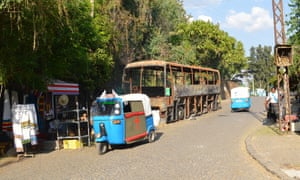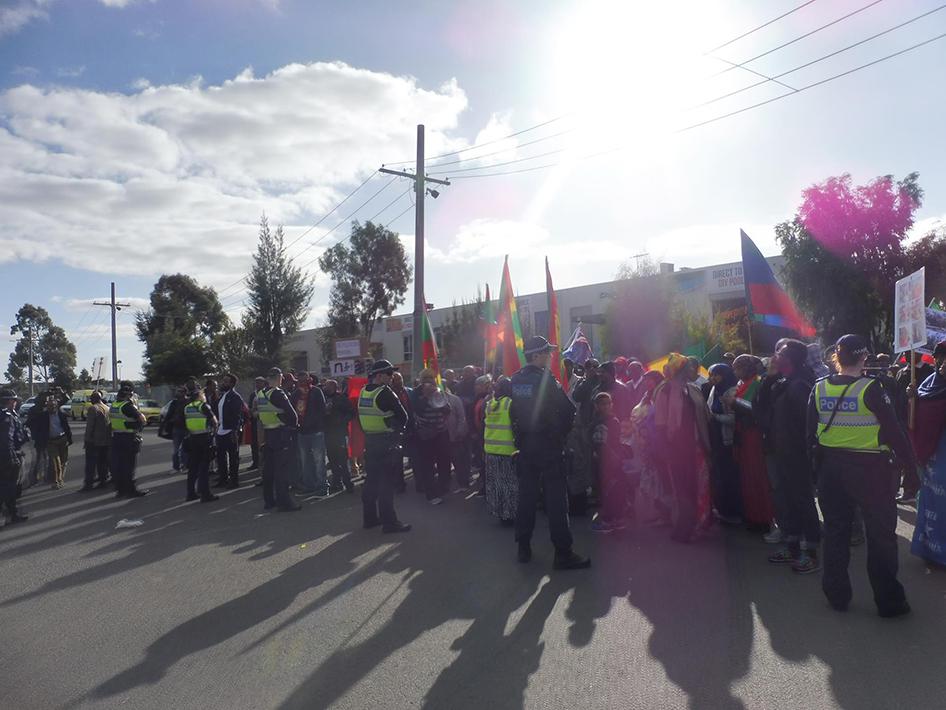ዴሞክራሲያ ቅጽ 42 ቁ. 2 ጥቅምት/ ኅዳር 2009
በማንኛውም የሥርዓተ ማኅበር ልውውጥና ሂደት የሚተላለፍ ኅብረተሰብ፣ ተወደደም ተጠላ፤
የሽግግር ወቅት የሚያስፈልገው መሆኑ አያከራክርም። ለዚህም በቂ ምክንያቶች ይኖራሉ። በቅርቡ
የሀገራችን ታሪክ እንኳን ሦስት ተፃራሪ ሥርዓቶች፣ ባለፈው ግማሽ ምዕተ ዓመት ሲለዋወጡ
የተመለከትን ሲሆን በሥርዓቶቹ ልውውጥ መካከል ለተተኪው ሥርዓት መተላለፊያ፣ ማስተናገጃና
መቆጣጠሪያ ሊሆኑ የሚገባቸው በቂ ዝግጅቶችና መሰናዶዎች ሳይደረጉ ቀርተዋል። ሂያጁውን
ማስወገድ እንጅ፤ መጭው ምን እንደሚመስል እንኳን በቅጡ ሳይታወቅ በመታለፉ ፤ በሁሉም መስክ
አገራችን መጎዳቷን ሁሉም ዜጋ የሚያውቀው ዕውነታ ነው። የዚህ ውጤትም የማያቋርጥ ፀፀትና ቁጭት
ሆኖ ቀርቷል። "አርቆ ማሰብ አቅቶኝ፤ በግብታዊነት እጄን በእጄ ቆረጥኩት" የሚያሰኝ ትካዜን ጥሎ
ሄዷል።
ያለፉት ሦስት ፅንፈኛ ሥርዓቶች የተፈራረቁት አንዱ ሌላውን በማስወገድና ሥልጣኑን በመተካት
ቢሆንም ሕዝቡ የበይ-ተመልካች በመሆን ተበደለ፤ ተጎዳ እንጅ፤ የመፃዒ ዕድሉ ቀያሽም ሆነ የመብቱ
ወሳኝ አልሆነም። እያንዳንዱ ሥርዓት ከአንዱ ወደሌላው በሚተላለፍበት ወቅት የለውጡ ሂደት
የፈጠረው ክፍተኛ ግርግር፤ ሕዝቡ የሚመኘውን የለውጥ ረድዔትም ሆነ በረከት እንዳያገኝ አድርጎታል።
ዕድሉን ተነጥቋል፤ ተስፋው የምድረ-በዳ ውልብልቢት ሆኖ ቀርቷል ። ያም በመሆኑ፤ ሽግግሩ የጥቂት
ሥልጣን ጥመኞች ማርኪያ ሆኖ አልፏል። ሕዝቡ ተሳታፊ ሊሆን ባለመቻሉም የብሩኅ ተስፋ ዕድሉ፤
ተሰናክሎ ቀርቷል። የዚህ አንደምታ፤ እስካሁን ድረስ ሀገሪቱን እያማቀቃት ይገኛል።
ይህ ችግር በሦስቱም ተከታታይ ሕዝባዊ አመፆች ተፈጽሟል - ተደጋግሟል። ከዐፄው ሥርዓት እስከ
ወያኔ አገዛዝ ተሰልሷል። በተለዋዋጮቹ ሥርዓቶች ሂደት ውስጥ ሕዝብ የሥልጣን ባለቤትና ተጠቃሚ
ባለመሆኑና የሕዝብ ተሳትፎ ተግባራዊ እንዲሆን ባለመደረጉ፤ የተጠበቀው የሀገር ተስፋ መክኗል።
From uneven development to authoritarian government, the morass of issues facing the city of Gondar offer a snapshot of Ethiopia’s wider problems







